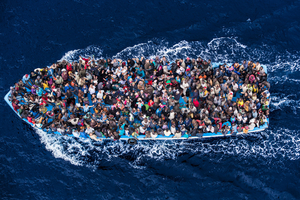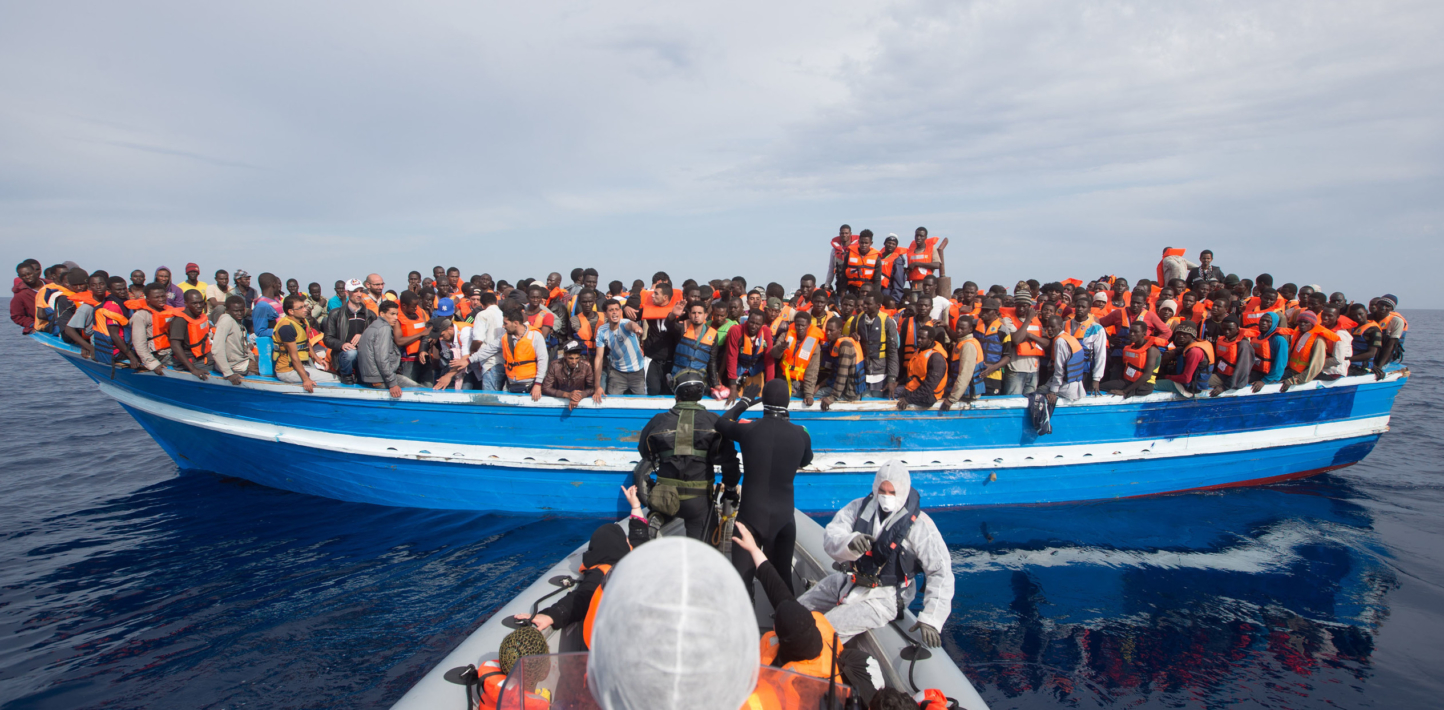By Sherif Elsayed-Ali, Head of Refugee and Migrants’ Rights at Amnesty International
Before the two shipwrecks that came to light yesterday,1,800 people were believed to have died or gone missing while attempting to cross the Mediterranean from North Africa this year. 700 more may have died in these latest incidents.
2014 will set a grim record with the highest number of refugee and migrant deaths ever recorded in the Mediterranean. This correlates with a significant increase in the number of people attempting this journey. Tragically, it was all entirely predictable.
For anyone paying close attention to events in the Middle East and Africa – and we should assume that those in charge of immigration policies in the European Union (EU) were – the warning signs were clear.
Half of those heading to Europe by boat are from Syria and Eritrea – the vast majority refugees fleeing conflict and persecution. 2013 saw a sharp increase in the number of people crossing the Mediterranean and that trend was set to continue due to the war in Syria, continued repression in Eritrea and the deteriorating political and security situation in Libya.
The war in Syria has resulted in one of the largest forced displacements of people in decades. Nearly 10 million people, more than 40 per cent of the country’s population, have been forced out of their homes. The vast majority of those who fled the country – more than three million – are concentrated in Lebanon, Jordan and Turkey.

The impact of this crisis is felt most in Lebanon. A country of four million people, it is hosting more than 1.2 million refugees from Syria; that’s an increase of more than 25 per cent of its normal population in less than three years.
Being a refugee is never going to be pleasant, but it doesn’t help when humanitarian needs – identified by specialized international agencies –are chronically under-funded. The United Nations humanitarian appeal for Lebanon has only received 36 per cent of its funding.
The international community, including the European Union, has abandoned Lebanon, but also Jordan and Turkey, and left them to carry the burden of the world’s biggest refugee crisis.
Calls for resettling larger numbers of refugees to countries outside the region have fallen on deaf ears. With the exception of Germany, only token numbers have been pledged, with a total of under 40,000 resettlement places pledged globally.
We often get asked why other countries should resettle Syrian refugees – aren’t they better off somewhere where they know the language and are closer to home? That may be true to a large extent, but the reality is that most refugees from Syria are barely able to make a living and face immense struggles with education, healthcare and housing. Year after year, it is getting worse, not better.
Resettlement can give a lifeline to refugees, allow them to restart their lives in dignity and relieve some of the pressure on the main host countries. A global resettlement target of 5-10 per cent of refugees from Syria would see between 150,000 and 300,000 vulnerable people getting this opportunity.
The EU is obviously a key region for refugee flows from the Middle East. But other countries must also do more. For example, Saudi Arabia has not pledged any resettlement places. Russia is not resettling anyone and has only given a pitiful $1.8 million to the United Nations’ $6 billion humanitarian appeal for Syria.
In 2013, globally there were more than 50 million people forcibly displaced from their homes, the first time this symbolic threshold was crossed since the Second World War. With conflicts continuing or worsening in Syria, Iraq and the Central African Republic, among others, the trend is likely to continue.
Tragedies in the Mediterranean will continue unless much more is done to provide assistance to people who fled the horrors of conflict. The EU, and the international community, must offer more resettlement places and more humanitarian funding to refugee crises. But given the level of desperation that can drive people to risk their lives on these dangerous journey, the EU must also invest more in search and rescue at sea.
The warning signs are clear for all to see. Without action, many more will die.


